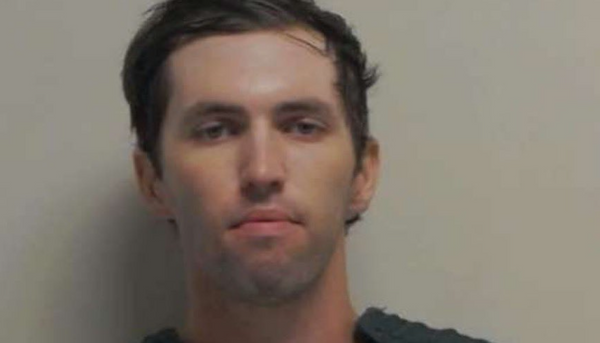The US central bank has increased official US interest rates by an expected 0.5 per cent to curb the biggest price rises seen in 40 years.
In an unanimous decision, the US Federal Reserve has lifted the federal funds rate by 50 basis points to a new target range of 0.75 per cent to 1 per cent, the biggest increase in 22 years.
Despite a slowdown in the US economy over the first few months of the year, the Fed's policy setting committee said that household spending and business investment remained strong, although it noted inflation was high because of the war in Ukraine and the COVID-19 lockdowns in China.
Consumer prices surged by 8.5 per cent over the past year, and in March, the US central bank lifted rates by 0.25 per cent, its first rate rise since 2018.
"Job gains have been robust in recent months, and the unemployment rate has declined substantially," the Fed said.
"Inflation remains elevated, reflecting supply and demand imbalances related to the pandemic, higher energy prices and broader price pressures."
At his first face to face press conference in two years, Mr Powell played down the prospect of a 0.75 per cent rate hike.
However, he said more 0.5 per cent increases were likely at the next two meetings.
"My colleagues and I are acutely aware that high inflation imposes significant hardship, especially on those least able to meet the higher costs of essentials like food, housing and transportation."
The move saw the greenback fall to a one-week low of 102.48 on the US dollar index.
Fed 'very late in responding'
Global investor Mohamed El-Erian tweeted that the Fed should have raised rates sooner, and the "too exuberant" rally on the US stock market after Mr Powell all but ruled out a 75-basis-point rise, was not justified.
"One big issue is that the #FederalReserve is already very late in responding," he said.
And Charles Schwab chief investment strategist Liz Anne Sonders warned about the risk of a recession in North America from higher interest rates.
"Although the Fed addressed the contraction in the economy in the first quarter, it focused more on the strong gains in final sales to households and businesses," Ms Sonders wrote in an investment note.
The US central bank said its $US9 trillion ($12.4 trillion) worth of bonds would be allowed to decline by $US47.5 billion a month in June, July and August.
The bonds will be allowed to mature and roll off the Fed's balance sheet, rather than being sold into the market by the Fed.
The Australian dollar jumped by more than 2 per cent, to 72.66 US cents overnight, as the greenback fell to a one-week low.
At 4pm AEST, the local currency had dropped 0.3 per cent to about 72.39 US cents.
Spot gold, which is seen as a hedge against inflation, rose 1 per cent to about $US1,900 an ounce in Asian trade.
Brent crude oil jumped more than $US5 a barrel overnight, or around 5 per cent, to $US110.35, as the European Union moved closer to banning Russian oil imports by year's end.
At 4pm AEST, Brent crude was up another 1 per cent to $US111.22 a barrel.
NAB posts half-year profit
National Australia Bank saw net profit for the six months to the end of March rise 10.7 per cent, to $3.55 billion, thanks to higher revenue from the economic recovery and strong demand for home loans.
Cash earnings, the bank's preferred measure of profit, rose 4.1 per cent from the same time a year ago, to $3.48 billion.
It said it benefited from strong growth in lending (+10 per cent) and deposits (+12 per cent) over the half year.
However, net interest margin, the profit margin from lending, fell 11 basis points because of tough competition for loans, partly offset by lower deposit and finance costs.
Expenses rose and the bank said an agreement with financial crimes regulator AUSTRAC for breaches of anti-money-laundering laws would cost the bank $120 million per year until the 2024 financial year.
NAB's interim dividend was 73 cents per share, fully franked, up 13 cents a share on the interim dividend a year ago.
The bank's chief executive, Ross McEwan, said he was pleased with NAB's performance, although the bank had "alot more to do" to deliver for customers.
"We are delivering better results because we are delivering for our customers and getting the basics right more consistently."
Mr McEwan told the World Today program that borrowers should speak up if they were feeling under pressure because of the rise in official interest rates, which has been passed on in full by the Reserve Bank.
"The big thing, for me with customers, if they are having difficulty please ring their bank," Mr McEwan said.
"Talk to us, so we can make adjustments for them."
He said the bank had not seen calls from customers yet who were in difficulty because of the rate increase, and dodged a question about whether the bank would foreclose on a borrower who defaulted on their loan.
NAB shares fell nearly 4 per cent in early trade.
By the close, the shares had come off their lows and fell 0.6 per cent to $32.25.
ASX climbs after Wall Street surge
After three days of losses, the Australian market ended higher following an exuberant night on Wall Street.
Aside from the banks, nearly all industry sectors were higher, with tech stocks, energy and miners leading the way.
The All Ordinaries index gained 1 per cent to 7,639, while the ASX 200 index put on 0.8 per cent to 7,365.
ANZ fell 1.7 per cent following yesterday's profit results, NAB lost 0.6 per cent, Westpac fell 0.25 per cent, and the Commonwealth Bank (+0.7 per cent) reversed course.
AMP (+1.7 per cent) swung from loss to gain, as investors withdrew $1.3 billion from its investment funds over the March quarter because of market uncertainty over the war in Ukraine.
However, AMP told investors to brace for a "one-off impact" when a contract to provide corporate superannuation for retailer Woolworths ended in early 2023, with the supermarket giant expected to pull out $4 billion from AMP funds.
The company's outflows were down from $2 billion for the first few months of 2021.
Meanwhile, the best performers on the ASX 200 index were nickel miner Liontown Resources (+7.7 per cent), lithium miner Pilbara Minerals (+7.6 per cent), and concrete maker Adbri (+7.1 per cent).
The worst performers were global investment company Janus Henderson (-13 per cent), app firm Lifes360 (-1.9 per cent) and infection control company Nanosonics (-1.9 per cent).
Rio Tinto AGM
Rio Tinto held its Australian annual general meeting and said nearly 16 per cent of votes cast were against its climate policy.
Big miners gained on a rise in iron ore prices after China's central bank pledged more support for businesses hit by COVID-19 lockdowns.
BHP put on 0.1 per cent, Fortescue Metals rose 3.5 per cent, and Rio Tinto climbed 0.4 per cent.
Qantas announces $614 million FIFO deal
Australia's largest airline, Qantas, says it will buy the 80 per cent of Alliance Aviation that it does not already own, for $614 million.
Allliance provides charter flights for workers in the mining industry.
The takeover needs to be approved by the competition regulator.
Qantas shares fell 0.35 per cent to $5.65, while Alliance Aviation surged 21 per cent to $4.25.
Economic data
Permits to build new homes fell by 18.5 per cent from February to March, on a seasonally adjusted basis, according to the Bureau of Statistics.
And the trade balance improved by nearly $2 billion — to a $9.3 billion surplus — as imports fell during March.
US stocks soar
Stocks on Wall Street surged as investors bet on the US central bank slowing inflation without causing a recession.
They were heartened by Mr Powell ruling out a 75-basis-point increase in the federal funds rate.
Meanwhile, the Dow Jones index jumped 2.8 per cent, to 34,061, the S&P 500 index rose nearly 3 per cent, to 4,300, and the Nasdaq rose 3.2 per cent, to 12,965.
It was the biggest gain in two years for the Dow and the S&P indices.
Shares in ride-share firm Lyft fell by one third on concerns about the company's customer levels and spending.
That was despite first-quarter revenue rising by 44 per cent, to $US875 million.
In Europe, major markets ended in the red thanks to lacklustre earnings.
The FTSE 100 in London fell by 0.9 per cent, to 7,494, the DAX in Germany lost 0.5 per cent, to 13,971, and the CAC 40 in Paris dropped 1.2 per cent, to 6,396.
ABC/Reuters







